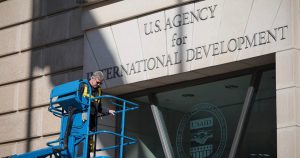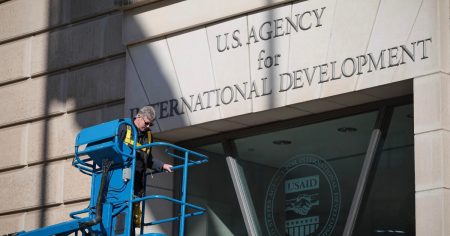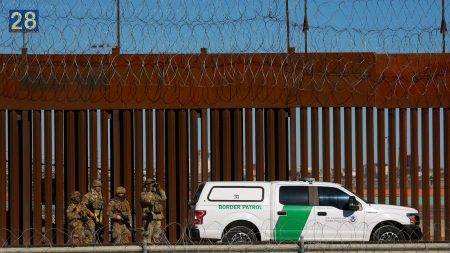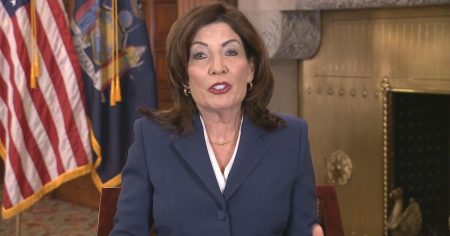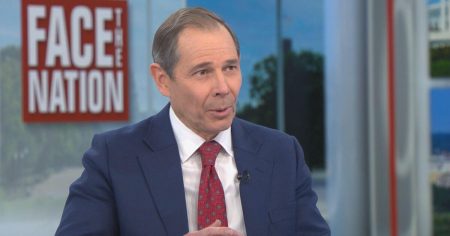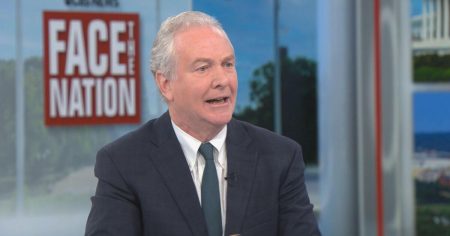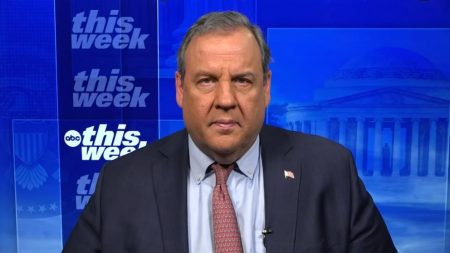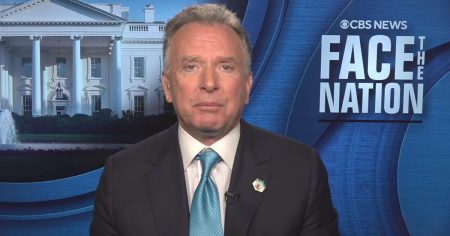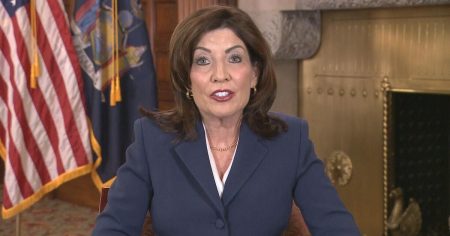A Growing Debate Over the Role of the Judiciary
In recent days, a heated debate has emerged within Republican circles regarding the role of the judiciary in balancing executive power. The controversy began when Vice President JD Vance asserted that judges should not overstep their authority by meddling in the legitimate powers of the executive branch. Vance’s comments came amid an escalating legal battle over President Donald Trump’s flurry of executive orders aimed at reshaping the federal government. While some Republican lawmakers have sided with the administration, others have pushed back, emphasizing the importance of judicial oversight in upholding the constitutional system of checks and balances.
Trump’s Frustration with Judicial Pushback
President Donald Trump has been vocal about his dissatisfaction with the courts, particularly as federal judges have repeatedly blocked or paused several of his executive actions. Trump took to his Truth Social platform to lash out at what he called “certain activists and highly political judges” who he claims are attempting to slow down or halt his administration’s efforts to investigate “FRAUD, WASTE, AND ABUSE.” During an interview on The Mark Levin Show, Trump criticized the judiciary for what he described as “bad rulings,” arguing that judges should not dictate how the country is run. He dismissed the courts’ concerns about the constitutionality of his actions, insisting that his administration is composed of “very important people, smart people” who are rightly investigating misconduct.
Republican Lawmakers Weigh In: A Mix of Support and Caution
While some Republican leaders have rallied behind the administration’s stance, others have expressed a more measured perspective. Senate Judiciary Chairman Chuck Grassley and Senate Majority Leader John Thune both highlighted the judiciary’s role in maintaining the balance of power. Grassley, invoking his eighth-grade civics lessons, expressed confidence in the system of checks and balances, saying, “I just expect the process to work its way out.” Thune echoed this sentiment, noting that the courts have an “important role to play” in refereeing disputes between the executive and legislative branches. He emphasized that the judiciary must ensure the laws of the land are followed, a responsibility that has been evident in recent years as courts have moderated both executive and congressional decisions.
Sen. Josh Hawley, a Judiciary Committee member and former state attorney general, offered a nuanced view. While he described Vance’s comments as an “understandable reaction” to frustration over court rulings, Hawley stressed that the judiciary is an independent branch, and its decisions must be respected. “You may think that’s not the right ruling, but they’re still the law,” Hawley said. He acknowledged the administration’s right to challenge and appeal rulings but cautioned against broadly disregarding court orders.
JD Vance’s Defense of Executive Authority
Vice President JD Vance’s remarks have been interpreted as a defense of executive authority, particularly as the administration faces numerous legal challenges to its policies. Speaking at an Artificial Intelligence Action Summit in Paris, Vance argued that judges should not overstep their role in constraining the executive branch. His comments reflect a broader frustration within the administration over the judiciary’s willingness to intervene in executive actions. While Vance’s stance has resonated with some conservatives, it has also drawn criticism from those who view judicial oversight as a cornerstone of democratic governance.
The Importance of Judicial Independence
At the heart of this debate is the principle of judicial independence, which ensures that the judiciary can act as a neutral arbiter in disputes involving the other branches of government. The courts’ ability to review executive actions for constitutionality and legality is a fundamental aspect of the U.S. constitutional system. Republican leaders like Grassley, Thune, and Hawley have emphasized that while the judiciary’s decisions may sometimes be contentious, they are essential to preventing abuses of power and safeguarding the rule of law. This perspective underscores the enduring importance of checks and balances, even as the administration seeks to assert its authority.
A Constitutional Balancing Act
As the Trump administration continues to advance its agenda through executive orders, the courts remain a critical check on its power. While some Republican leaders, such as House Speaker Mike Johnson, have expressed unqualified support for the administration’s position, others have urged caution, recognizing that judicial oversight is a necessary component of the constitutional order. The ongoing tensions between the executive and judicial branches highlight the delicate balance of power in the U.S. system of government, a balance that has been tested repeatedly throughout the nation’s history. As the legal challenges to Trump’s executive actions continue to mount, the judiciary’s role as a guardian of constitutional accountability will remain central to the debate.


